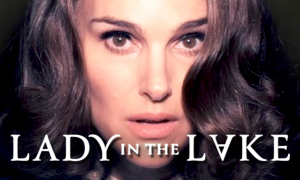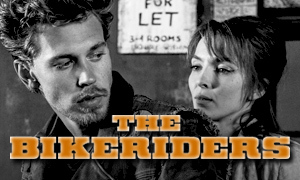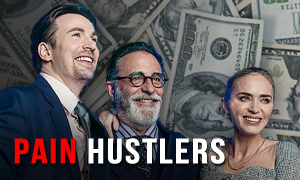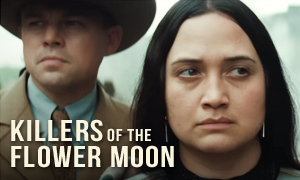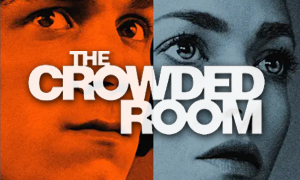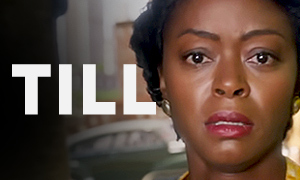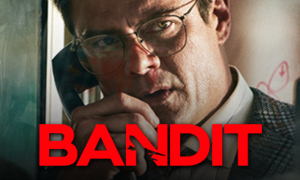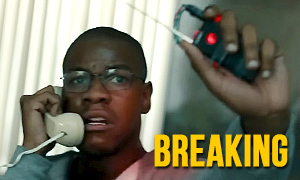Marshall: History vs. Hollywood
| REEL FACE: | REAL FACE: |
Chadwick Boseman
Born: November 29, 1976 Birthplace: Anderson, South Carolina, USA | Thurgood Marshall
Born: July 2, 1908 Birthplace: Baltimore, Maryland, USA Death: January 24, 1993, Bethesda, Maryland, USA |
Sterling K. Brown
Born: April 5, 1976 Birthplace: St. Louis, Missouri, USA | Joseph Spell
Death: 1968 Live-in Butler-Chauffeur of Strubing Family |
Kate Hudson
Born: April 19, 1979 Birthplace: Los Angeles, California, USA | Eleanor "Ellie" Strubing
Born: Jan 3, abt 1908 Birthplace: Woodbury, New Jersey, USA Socialite Accuser |
Josh Gad
Born: February 23, 1981 Birthplace: Hollywood, Florida, USA | Sam Friedman
Born: January 5, abt 1904 Death: November 25, 1994, Fairfield, Connecticut, USA Attorney Hired by NAACP |
Dan Stevens
Born: October 10, 1982 Birthplace: Croydon, Surrey, England, UK | Lorin W. Willis
Born: abt 1893 Birthplace: Connecticut, USA Death: August 1, 1972, Bridgeport, Connecticut, USA State's Attorney |
Keesha Sharp
Born: June 9, 1973 Birthplace: Brooklyn, New York, USA | Vivien "Buster" Burey Marshall
Born: February 11, 1911 Death: February 11, 1955 Thurgood's Wife |
Jussie Smollett
Born: June 21, 1982 Birthplace: Santa Rosa, California, USA | Langston Hughes
Born: February 1, 1902 Birthplace: Joplin, Missouri, USA Death: May 22, 1967, New York City, New York, USA (complications after abdominal surgery for prostate cancer) |
James Cromwell
Born: January 27, 1940 Birthplace: Los Angeles, California, USA | Judge Carl Foster
Born: August 28, 1872 Birthplace: Waterford, Virginia, USA Death: 1959 Photo circa 1911 |
Roger Guenveur Smith
Born: July 27, 1955 Birthplace: Berkeley, California, USA | Walter Francis White
Born: July 1, 1893 Birthplace: Atlanta, Georgia, USA Death: March 21, 1955, New York City, New York, USA Executive Secretary of the NAACP |
Was Thurgood Marshall really friends with poet Langston Hughes?
Yes. The Marshall true story confirms that he met famed poet Langston Hughes while they were attending Lincoln University together. "Langston was at Lincoln with me," said Marshall. "One of the greatest people I've ever known. He knew everything there was to be known. He'd been around the world twice before he was 21 on tramp steamers. He studied and he just self-studied and then he went to Lincoln. He was a great guy. I liked him." Jazz musician Cab Calloway was also a classmate. -ThurgoodMarshall.com
Was Thurgood Marshall a Republican or a Democrat?
Marshall was affiliated with the Democratic Party. His successor, African-American justice Clarence Thomas, is a Republican.
Was Thurgood Marshall's great-grandfather a slave?
Yes. During our fact-check of the Marshall movie, we confirmed that one of his great-grandfathers was born in the Democratic Republic of the Congo. He was captured and brought to America as a slave.
Did Eleanor Strubing accuse her chauffeur of rape and attempted murder?
Yes. "My houseman must have gone berserk. He came to my bedroom door with a knife and raped me," Eleanor told Dr. Francis G. Zeier in her conversation with the physician who examined her. "I'm awfully glad to be alive. I don't think I could have stood it much longer" (The Helena Independent). During the day and a half she spent on the stand testifying, Eleanor, 32, told the jury that 31-year-old Joseph Spell attacked her when she emerged from the shower in her Greenwich, Connecticut home on the night of December 10, 1940. She said she screamed, hoping to wake his common-law wife, Virgus Clark, asleep upstairs in an attic bedroom. Eleanor claimed Spell hurled her onto the bed. She struggled at first, but he threatened to kill her. "I was frightened to death and could hardly breathe," she said repeatedly while being cross-examined (Kingston Daily Freeman). She stated that Spell had raped her a total of four times that night while her hands were tied.
Eleanor claimed that Spell, her butler-chauffeur, told her he was kidnapping her and forced her to compose a $5,000 ransom note to her husband who was away in Cincinnati. Spell drove her in her own car to the Kensico Reservoir in Westchester County just over the New York state line. Bound and gagged, she complained that the bonds on her hands were cutting into her skin. He cut them before ordering her out of the car. He threw her into the water to "get rid of her," and she said she was able to take off her heavy fur coat and undo the ropes that bound her legs. "But he stood at the top of the bank throwing stones at me and I decided to float as if I were dead, hoping to fool him into leaving," she told detectives. After he was gone, she swam the rest of the way to the shore. In the pre-dawn hours of December 11, two truck drivers, Henry Herlihy and Samuel Caesar, discovered her on the reservoir's edge in a semi-hysterical condition, her clothing drenched (The Philadelphia Inquirer).
What did chauffeur Joseph Spell say happened between himself and Eleanor Strubing?
Eleanor Strubing's butler-chauffeur, Joseph Spell, said that he only went to his employer's bedroom to ask for money to send to his sick mother. Wearing nothing but a silk robe, she let him in. He said that not only did she readily give him the money, but she "led him on." Spell said he expressed to her his interest in having an affair, to which she agreed as long as no one found out. He didn't deny having sex with her but denied using any sort of force, claiming that it was consensual. He said she didn't want to do it in the bedroom for fear of being discovered after her pet schnauzer started barking, so they went down to the garage and had sex in the car. In his book Thurgood Marshall: American Revolutionary, biographer Juan Williams writes that they stopped intercourse when the fear of getting pregnant came over Eleanor. "We stopped [intercourse] and I had a discharge in my pocket handkerchief," Spell said in the deposition with his lawyers.
He then suggested they go for a drive, which Eleanor said would be okay and she put on her fur coat. Yet even the car ride was making her nervous of being discovered. She told him to drive into New York, then suddenly instructed him to pull over at the Kensico Reservoir, where she darted from the car. Spell claims he pleaded with her to return home, but he decided not to chase after her for fear that she would hurt herself. "She said that she was all right and for me to go on home," he told his lawyers. He left and went to play blackjack at a friend's house before returning home. -LegalAffairs.org
Where was Joseph Spell arrested?
Joseph Spell was arrested in the basement laundry room of the Strubing home in Greenwich, Connecticut, where he said that he had dosed off after returning. He lived and worked there along with his common-law wife, Virgus Clark. -Cumberland Evening Times
Did Joseph Spell confess?
In researching the Marshall true story, we discovered that like in the movie, Joseph Spell confessed, believing he would be convicted regardless of whether he assaulted his employer, socialite Eleanor Strubing, or not. According to Assistant Prosecutor Archibald H. Tunick, the details of Spell's confession were substantially similar to Eleanor's story. Spell supposedly confessed after 15 hours of questioning. However, when lawyers Thurgood Marshall and Sam Friedman spoke to him, Spell said that he did not confess to rape and kidnapping, only to engaging in consensual sex. -LegalAffairs.org
How long had Joseph Spell been working for Eleanor Strubing?
Joseph Spell had been working for the Strubing family for over a month before he was accused of rape. His childhood friend and common-law wife, Virgus Clark, who had already been working for the family as a cook, got him the job. -Kingston Daily Freeman
Had Joseph Spell ever threatened any previous employers?
Yes. On his first day of employment with the Strubings, Joseph Spell was arrested for threatening to hurt a former employer when she wouldn't loan him money. -LegalAffairs.org
Was the supposed ransom note ever found?
No. A fact-check of the Marshall movie confirmed that the $5,000 ransom note that Eleanor Strubing said Joseph Spell forced her to write was never found by the detectives. The missing note, in addition to the missing rope supposedly used to bound her, hurt the credibility of Eleanor's story. -The Philadelphia Inquirer
Does actor Sterling K. Brown look like the real Joseph Spell?
Not exactly. Joseph Spell was a short, stockily-built man with broad shoulders, while actor Sterling K. Brown is 6-foot tall and slender.
Had chauffeur Joseph Spell been kicked out of the Army?
Yes. The Marshall true story reveals that Joseph Spell, the accused, had been kicked out of the Army for stealing and smashing up an officer's car while intoxicated. -GreenwichTime
Were any African Americans on the jury?
No. However, two African Americans had been on the panel of prospective jurors. One was an elderly clergyman who was challenged by the state and removed. The other was excused by Judge Carl Foster (portrayed by James Cromwell in the movie). -Kingston Daily Freeman
Why was the case so important for Thurgood Marshall and the NAACP to win?
The State of Connecticut v. Joseph Spell had a lot riding on it for blacks in the North. They had been shut out of factory and union jobs, leading many to turn to domestic service for income. If Thurgood Marshall and Sam Friedman lost the case, then many blacks would likely be let go by their white employers due to racist fears that they might behave like Joseph Spell. -LegalAffairs.org
Did protesters hold "hang 'em" signs outside the court?
Such incidents certainly occurred in various cases throughout Thurgood Marshall's career as an attorney, and there are pictures to verify it. Given that the Spell case was fairly high profile, it's certainly likely that there were protesters holding similar signs. What we do know for a fact is that anonymous hate mail containing death threats was sent to Marshall and Friedman, as well as to the jurors and judge. Some of it contained graphic pictures of lynchings. -LegalAffairs.org
Was prosecutor Lorin Willis really a racist?
According to lawyer Sam Friedman (portrayed by Josh Gad in the movie), the state's attorney, Lorin Willis, was a bigot with a broad spectrum of prejudices. "He hated everybody," recalled Friedman. "If you were a Polack, if you were a Jew, if you were a wop—this was Willis. He was a no-good S.O.B., that's what he was." -LegalAffairs.org
Did Thurgood Marshall almost get into a bar fight?
Does the movie correctly portray attorney Sam Friedman?
No, at least not according to Sam's nephew, Roger Friedman, a movie critic of over 25 years. "Almost not a word of my great uncle's depiction in the movie is accurate," writes Roger Friedman. He says that his uncle's depiction as being a novice trial lawyer who was insecure without Thurgood Marshall present is completely false. It was Sam Friedman who was the lead and argued the case while Marshall, who was sent as a consultant, took notes. This is well documented and also evidenced by the fact that Marshall is barely mentioned in press coverage of the trial.
Roger calls Sam's portrayal of being a person of no backbone who feared for his life laughable. By that point, Sam had already been practicing law for 14 years, longer than Marshall, and had a stellar reputation as a trial lawyer. It would have not been uncommon for him to take such a case, as he was a champion against such injustices throughout his career. Sam was the architect of the case, not Marshall.
Roger says that the moment in the movie that is most "absurd" is when Sam (Josh Gad) tells Thurgood Marshall (Chadwick Boseman) that he can't afford to lose the case, to which Marshall responds twice, "F*** you, Sam Friedman." Roger says that it is unimaginable that Marshall, a man who was highly intelligent and educated, would have ever addressed Sam that way. He said that his family "cringed" when they heard it at a private screening. In addition, Roger says that Josh Gad was miscast as Sam, a point that is evident in both physical appearance and in reading interviews with the real Sam Friedman. -Showbiz411.com
Was attorney Sam Friedman really violently attacked for working on the case?
No. In real life like in the movie, attorney Sam Friedman was hired by the Bridgeport NAACP to work on the case with Thurgood Marshall. The NAACP believed that having a white attorney argue the case would connect better with an all-white jury. In addition, Friedman was a Connecticut lawyer who was familiar with Connecticut laws.
It's not hard to imagine that his presence on the defense would anger intolerant individuals who were following the case, and it did. Friedman went on vacation after the trial to let his neighbors cool down. "A lot of people were sore," Friedman recalled. "I can't tell you the things they said." He also received letters threatening him and his family. However, in our research we found no evidence that Sam Friedman was beaten for defending Joseph Spell. In fact, Friedman's family has spoken out against this and other fabrications in the movie. "My uncle was never beaten up by anyone, especially racist thugs," wrote Roger Friedman, Sam's nephew who runs the movie website Showbiz411. The scene is fiction that the screenwriter introduced to evoke in Friedman (Josh Gad) a newfound understanding of the case and its importance, and to give Marshall (Chadwick Boseman) comfort in knowing that Friedman was "one of us now" as he says in the movie. -LegalAffairs.org
How much prison time was Joseph Spell facing?
The true story confirms that if convicted, Spell faced up to 30 years in prison. -The Philadelphia Inquirer
Did the physicians who examined Eleanor Strubing testify that they believed she had been assaulted?
Dr. Francis G. Zeier of White Plains, New York took the stand and said that a physical examination convinced him that Mrs. Strubing had been forcibly assaulted (The Kingston Daily Freeman). Three gynecologists, Dr. Stella Strayer, Olga Little and Joseph Howard, who were brought to the stand by the defense, said that her internal injuries alone were not enough for them to suspect a "brutal assault." However, under cross-examination they conceded that Mrs. Strubing's condition could have been caused by such an attack (The Philadelphia Inquirer).
Did the jury find Joseph Spell innocent?
Yes. After deliberating for nearly 13 hours, the superior court jury of six white men and six white women acquitted chauffeur Joseph Spell of the charges. After the state's attorney, Loren Willis (portrayed by Dan Stevens in the movie), decided not to pursue an appeal, Joseph Spell was released from custody a free man. Of the outcome, Willis said, "I completely disagree with the verdict." -Fitchburg Sentinel
Was Eleanor Strubing present for the verdict?
No. Fact-checking the Marshall movie revealed that Eleanor and her husband, New York advertising executive and former Princeton athlete John K. Strubing, Jr, were not in the courtroom on the day of the verdict. However, he had been there when Eleanor was on the stand and throughout the trial. Eleanor's brother-in-law, Philip Strubing, a Philadelphia attorney, was present for the verdict. Audible gasps could be heard in the courtroom when the innocent verdict was read. -The Helena Independent
What caused the jury to doubt Eleanor Strubing's story?
The jury concluded that there was enough reasonable doubt to render an innocent verdict for Joseph Spell. When Sam Friedman asked Eleanor if she could in fact not recall what she had done to fight off her attacker, she responded in near tears, "I don't remember, Mr. Friedman. I've tried to forget it. I was so frightened, so petrified, I didn't know what to do." Her lack of detail in recounting the attack, as well as her tendency to jump around time-wise when describing the events of that night, contributed to the jury's doubt. Also, the detectives were never able to find the ransom note or the ropes that she said Joseph Spell used to tie her up. In addition, the defense pointed out that she never called the police during periods of time when she was by herself during the ordeal.
Under cross-examination, she became angry and fired terse replies back at Attorney Friedman's long series of questions attempting to discredit her story. Friedman played on the fact that she had been married multiple times and had previously engaged in extramarital affairs. Under direct examination by the state's attorney, Lorin W. Willis, she was overly emotional and "alternately wept, choked, hesitated and quavered" (The Philadelphia Inquirer).
Her claim that she was raped four times in one night by the same man, though possible, also raised suspicions. Thurgood Marshall told his biographer Juan Williams, who wrote Thurgood Marshall: American Revolutionary, that press coverage of the case sparked eye-rolling laughs at the NAACP offices. "He was supposed to have raped this woman four times in one night," recalled Marshall. "All I got to tell you is when the story got in the newspaper, all the secretaries, all of 'em, came and said, 'Hey, defend that man. We want to see it. Four times! Ha ha. Ha ha. Four times in one night. Yeah, bring him in here, let us see him.' I told 'em get out of my office."
How did the real Eleanor Strubing react to the verdict?
The socialite maintained that her story was true. "The verdict leaves the women of America at the mercy of anyone who may seek their ruin," Eleanor said (Lima News). "The verdict has done the very thing I braved the glare of publicity to avert. It has told all men so inclined that they may attack women with impunity and that there are men ready to supply the accused with brains by which to publicly further degrade the victim who dares to claim protection under the law" (Altoona Tribune).
Did Eleanor's husband believe her?
Yes. After the verdict came down, John K. Strubing declared in a statement that he had "complete confidence in my wife's integrity and can only hope that, by love and affection, I will in time be able to make her forget the horrible reward she received for doing her duty to other women and the state" (Altoona Tribune). The Strubings moved from Greenwich to Old Lyme, and they stayed together until John's death in 1961, after which Eleanor married a well-known New Haven attorney.
What happened to Joseph Spell after the trial?
After the innocent verdict was rendered and Spell was given his freedom, he would eventually move to East Orange, New Jersey where he spent the rest of his life with his common-law wife, Virgus Clark. Spell died in 1968.
Marshall Movie Trailer & Related Videos
Learn more about the Marshall true story by watching the interviews and videos below.
Link-to-Learn More:
